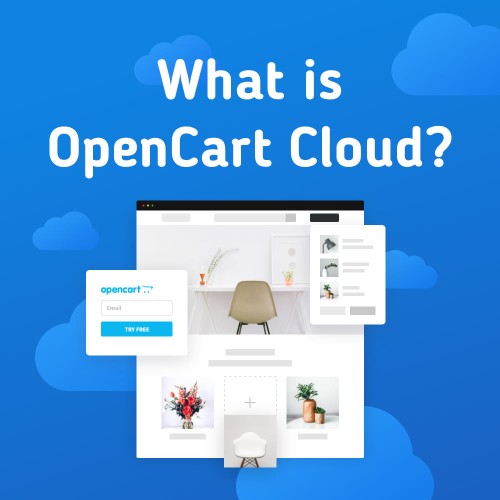E-commerce today is a rapidly growing industry. From online shopping anywhere and anytime, easy access to an endless variety of products, and relative ease of comparing prices, e-commerce presents consumers with interesting benefits.
However, the industry also has its downsides besides the somewhat regular struggles such as providing stellar and immediate customer support or trying to constantly optimize the buyer’s journey to deliver exceptional customer experience, no doubt that the biggest one is the environmental impact. Making an e-commerce business more sustainable is the ideal way to reduce your environmental footprint and also create a more positive online shopping experience for your customers.
In a recent consumer survey conducted, 60% of customers also said they would pay more for brands that utilize sustainable packaging. Likewise, another survey found that 72% of respondents actively buy environmentally friendly products.
There are several advantages to sustainable e-commerce. From a business perspective, it can help improve their reputation and attract new customers, whereas, from a customer’s viewpoint, it can help reduce their environmental impact and support sustainable and environmentally friendly businesses.
To this end, this article will explore more about the need for sustainable e-commerce and various ways businesses can employ to reduce environmental impact, to be able to offer a greener online shopping experience to consumers.
What is Sustainable E-commerce?
Sustainable e-commerce refers to the ongoing practice of running an online store in a way that minimizes environmental impact. This can include aspects such as using recycled packaging, sourcing products from sustainable suppliers, and offering carbon-neutral shipping.
Some of the other initiatives that are associated with sustainable e-commerce include reducing your carbon footprints, minimizing waste, and practicing fair trade.
To promote sustainable e-commerce and conserve the environment, most online businesses choose sustainable materials (recycled, organic, natural) to make, package, and ship their products. Likewise, they support local vendors and suppliers to reduce carbon emissions, run their stores efficiently, and make them sustainable.
Importance of Sustainability in E-commerce
Sustainability today has become a popular trend and an essential goal for all businesses. An increasing number of brands and retailers are becoming aware of the impact that their supply chain and e-commerce have on the environment.
This, in turn, prompts them to take on sustainable business practices that can help to change the situation and improve their brand image to cater to the demands of increasingly environmentally-conscious customers.
A recent study by Nielsen also indicates that as many as 73% of shoppers today have changed their habits to reduce environmental impact. This has made it essential for brands or online stores to adapt to these new demands, to remain competitive in the market.
An e-commerce business that practices sustainability must implement guidelines to ensure its long-term success. Among these include adopting various policies and programs to reduce waste and pollution, promote social inclusion, and generate revenue through renewable sources.
Ways to Make E-commerce Sustainable
Looking to adopt sustainable e-commerce as part of your business strategy?
Here are some of the best ways you can do it.
1. Use Eco-Friendly Packaging
A study conducted recently found that e-commerce generates as high as 4.8 times more packaging waste as compared to in-store purchasing. What is even more worrying is that packaging waste in the online shopping industry is further projected to reach 4.5 billion pounds by 2025.
One of the best ways e-commerce businesses can reduce this waste is by using eco-friendly or sustainable packaging. This is especially relevant today as an increasing number of customers are making the switch to online shopping post-pandemic. Due to this, the number of containers and packaging is likely to grow.
Businesses today need to choose from many sustainable packaging alternatives to reduce weight, satisfy customers, and create an immediate positive environmental impact.
Businesses can use sustainable e-commerce packaging such as recyclable boxes or packaging made from biodegradable materials like corn starch or bagasse paper instead of cardboard. Doing so will help them adopt environmentally friendly practices while also avoiding box-in-box packaging.
2. Eliminate Single-use Plastics
Single-use plastics are a massive contributor to pollution, waste, and overall climate change. This makes it important to find innovative ways to reduce or eliminate the use of them throughout your supply chain.
What this could mean is reducing or eliminating the act of packaging every single item within an order in its bag or at least reducing the amount of marketing collateral that is included with every order.
There are chances that the nature of some products might require individual packaging for either safety or sanitary reasons. However, it is best to switch it out for a biodegradable bag or packaging made from recycled materials wherever possible.
3. Implement Sustainable Shipping Practices
Sustainable shipping is fast becoming an important topic of discussion for e-commerce brands.
Some of the ways to switch to sustainable shipping practices are:
Using recyclable packaging
Reducing the total amount of packaging to printing labels using thermal printers to save on ink.
Investigate various eco-friendly programs from major carriers such as UPS, FedEx, and USPS (United States Postal Service), etc, that can offer paperless invoicing and other sustainable options.
Encourage customers to choose slow shipping by offering them discounts.
Economy shipping. This method is a mix of cost savings and customer satisfaction, showing that you don’t need to rush every single order. This provides customers with an affordable and dependable option, featuring Economy Shipping tracking, reduced costs, and a slightly extended delivery time frame.
E-commerce businesses can also leverage free, open-source e-commerce platforms such as OpenCart especially designed for online merchants. The platform offers a professional and reliable foundation to help you build a successful online store within a few simple steps.
4. Reduce Delivery Emissions
When it comes to e-commerce, cargo transportation is a major concern that makes up 8% of global greenhouse gas emissions. Some of the methods you can employ to address this and reduce your business’s delivery emissions include the following-
Ship locally whenever possible
Make use of urban fulfillment centers for all direct-to-home deliveries
Source from various local and regional suppliers to efficiently meet varied needs
Make sure to consolidate all deliveries on a circular route. Research also shows that this can reduce transportation-related emissions by nearly 90%
Minimize the instances of unsuccessful delivery attempts
Utilize a route planner app to optimize delivery routes for efficiency and fuel savings, ensuring drivers take the shortest and least congested paths to their destinations.
5. Integrating Custom GPTs for enhanced sustainability in e-commerce operations
Integrating Custom GPTs into e-commerce operations significantly enhances sustainability efforts. These AI models streamline inventory management, effectively reducing waste from overstock and minimizing unsold goods. They improve customer service with AI-driven bots, offering rapid and precise responses that can lower return rates. This approach aligns with the growing trend in the customer experience (CX) space, as Qualtrics competitors are also increasingly adopting AI-powered solutions to enhance their customer support capabilities.
For marketing, Custom GPTs can generate targeted content, including drafting scripts for videos, which, when combined with specialized AI video production tools, enables the automated creation of engaging promotional materials. This approach not only makes marketing campaigns more efficient but also lessens their environmental impact by reducing the resources traditionally required for video production.
Furthermore, by analyzing customer behavior and forecasting trends, these AI tools allow businesses to tailor their product offerings accurately, avoiding overproduction.
Lastly, Custom GPTs optimize logistics, ensuring delivery routes are as efficient as possible, thus minimizing emissions. This multifaceted application of Custom GPTs promotes sustainable practices across various aspects of e-commerce, leading to more innovative and efficient operations.
The Bottomline
With growing awareness, the future of sustainable e-commerce looks very bright. As consumers become more conscious of the environmental impact of their online purchases, they are increasingly demanding more sustainable or greener options from businesses.
This is creating an ever-growing market for sustainable e-commerce and businesses that embrace this trend to prioritize customer demands for sustainable online shopping experience will pave their way for success in the years to come.
By showing consumers that you care about the environment, and the impact your e-commerce business has on it, you can successfully identify with them on a more emotional level, helping you improve customer experience and loyalty in the long run.




Login and write down your comment.
Login my OpenCart Account